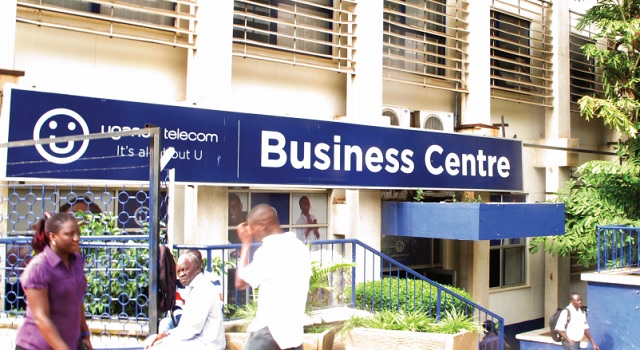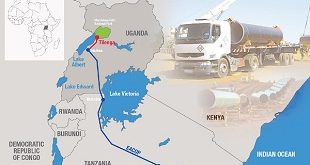
Will Bemanya’s removal save or ruin the company?
Kampala, Uganda | JULIUS BUSINGE | Bickering among government officials on who should take over the management of Uganda telecom as provisional administrator could scare away prospective investors, experts say.
UTL needs around Shs255bn to clear some of its Shs536bn debt and also help it upgrade its network to 4G especially in major towns of Kampala, Entebbe, Gulu, Mbarara, Mbale, Tororo, Busia and Fort Portal.
This would guarantee fast and efficient service delivery to its customers and possibly grow its revenue.
Twebaze Bemanya, the Registrar General of the Uganda Registration Services Bureau (URSB), who has been the firm’s provisional administrator since 2017 saw his contract expire on Nov.22.
He has been part of the government leadership seeking prospective investors to invest in UTL as part of the turnaround strategy for the struggling company.
However, relevant government officials had not appointed a new administrator by Nov.25 despite President Yoweri Museveni’s directive that Bemanya should leave.
Still by that time, top government officials remained divided on whether or not to appoint a new administrator.
Museveni had earlier asked the Justice and Constitutional Affairs Minister, Kahinda Otafiire, to search for a new administrator in close partnership with the Ministry of Finance Planning and Economic Development officials.
Industry experts say that the continued fight at the company was not good for business given that beyond management and debt challenges, there were other problems relating to old infrastructure, human resource and market competition that the company was battling with.
The energy, experts say, should be focused on fast resolving the administration issue as one way of dealing with the other problems.
But there are other lingering questions; can a new administrator succeed where Bemanya has failed? Why can’t the government declare the company insolvent and liquidate it?
Industry experts who spoke to The Independent said, while the fights are synonymous with people who have different interests in any entity, it could scare away the would-be investors in UTL.
“If government decides it is not going to support UTL or its administration process anymore, that company is going to collapse,” said Kabiito Karamagi, the managing partner, at Ligormac, a legal firm that partly specializes in corporate insolvency and restructures.
Karamagi said it is also surprising that the creditors who should now be making noise over the matter are silent yet the administrator is serving their interests.
Ronald Sebuhinja, the chief technical officer at Yo Uganda Limited and a former employee at MTN Uganda told The Independent that despite the government officials’ divergent views, they ‘must try to resurrect the company or declare it completely insolvent and liquidate it.”
He said changing the administrator does not change the factors that led the company into provisional administration.
However, he said, the long period taken by the current administrator to turnaround the company’s fortunes could partly mean he has failed.
“Probably a new administrator may do a good job but we don’t know what constraints Bemanya faced,” he said, adding that the company’s challenges might have been too many that the administrator was overwhelmed.
He suggested that the government, being the primary shareholder in the company, should use tax payer’s money or raise capital through the securities market to turnaround the telecom firm.
The worry, however, is that notwithstanding investing in the company, there is no guarantee that UTL will attract enough customers to keep the business running given that other big players in the market are not sleeping.
The other option, Sebuhinja said, is that the government can get an investor who can try their luck in the company only if they badly want UTL to keep running.
Balancing interests
Aeko Ongodia, the chief executive officer at Xeno Technologies Uganda Limited, a financial management firm, said there is need for government officials to avoid fighting over UTL management publicly so as not to scare away the-would be investors in the company.
He, however, said there is need for the firm to identify the actual customer needs and draw a strategy with solutions to serve those needs.
He said Uganda’s telecom industry is so competitive and any other firm trying to penetrate the market will have to struggle.
“If you are not among the top two players in the country, you are very likely to struggle because of the high input cost of infrastructure,” Ongodia said.
“In this market, the first and second position in terms of telecom’s market share, are nearly cemented,” he said, “Everyone who has come after that has struggled.”
He said if the government thinks that the company is good for their communication, then it can go ahead and inject in the required capital to be able to sufficiently cover the costs.
He, however, said the strategic reasons for the telecom firm need to be checked with a commercial sensibility
The company had 700, 000 customers as at the end of 2017, which represented merely 3% of the market share. It was estimated that the market had about 23million subscribers, according to Uganda Communications Commission data.
 The Independent Uganda: You get the Truth we Pay the Price
The Independent Uganda: You get the Truth we Pay the Price



